So, you want to write a book. There’s an idea stuck in your head that keeps you up at night, or perhaps it’s a dream you’ve had that you just know will make a gripping novel. Maybe it’s a unique experience or situation you’ve been through, which you feel a burning need to share with others. Whatever it is, you know you have a book in you, and you’re just waiting until you have the time to write it, or for the exact circumstances to line up to make it easy for you.
If I had a dollar for everyone who tells me they’re going to write a book, I could quit my job and write full-time myself. And the question I’m asked more than any other, at events, online and via email, is how to write a book. What will make it easy? What are the secret tips or insider tricks to getting it done? Yet no one likes the answer – that you just have to fire up your computer or pick up a pen and write. Day after day after day. There is no secret method, no way to cheat it. If you want to write a book, you have to sit your butt down and write it. It’s that easy, and that hard.
But it can be done.
In 2012, after publishing five non-fiction books, I decided to see if I could write a novel. I signed up for National Novel Writing Month, an online challenge where you write fifty thousand words in thirty days. I figured I had nothing to lose – if I couldn’t write that many words it didn’t really matter, and if what I wrote totally sucked I could just toss it, and I would have only wasted a month on the experiment. But it did work, and I’ve written this way ever since.
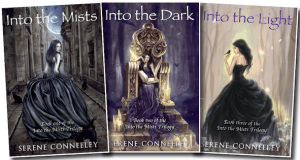 The first year I wrote Into the Mists, the next I wrote Into the Dark, and the one after that I wrote Into the Light. In 2015 I wrote more than fifty thousand words of an Into the Mists Chronicle, the following year I wrote much of Into the Storm, and last year I wrote most of Into the Fire. While they needed some extra chapters written and had to be edited and revised, just like the first three, the bulk of the first drafts were done in a single month.
The first year I wrote Into the Mists, the next I wrote Into the Dark, and the one after that I wrote Into the Light. In 2015 I wrote more than fifty thousand words of an Into the Mists Chronicle, the following year I wrote much of Into the Storm, and last year I wrote most of Into the Fire. While they needed some extra chapters written and had to be edited and revised, just like the first three, the bulk of the first drafts were done in a single month.
For me this method works because the looming deadline stops me from editing as I go, which can bring any writing to a screaming halt and interrupt the flow of your words, and it forces me to get my story out, without judgement or fear – you just pour it all out onto the page. And I’ve discovered that the more I write, the more I want to write, and the more the story unfolds and the plot becomes clear, because I’m focused on it completely, working on it every day, obsessing over the characters and their actions, dreaming about it even. It’s tough – while some days the writing flows quite well, other days it feels like torture, and I become convinced that my words are boring and pointless. But I push on anyway. As author Jodi Picoult says: “You can always edit a bad page. You can’t edit a blank page.”
So, are you up for the challenge of writing a book in a month, or even just making a proper start on one? Because if you are determined to do it, you absolutely can!
1. Discover what works for you.
It’s different for everyone, but finding your most productive way to work Iand your most productive time) is a big breakthrough. I’ve always found it fascinating to hear about how other people write, and sometimes it will offer a gem I can incorporate into my own sessions (for insight into the writing routines of many creatives). One of my friends writes for twenty minutes a day, every day, while another dedicates his Sundays to writing – and they both achieve about the same word count each week. For me, NaNoWriMo gives me the push I need to get my story written, and also ensures I don’t waste time editing as I go, or stopping to research or whatever – it’s designed to force you to write fast and write a lot, so you have a first draft that you can then knock into shape.
Some people prefer to type directly into a computer file, while others swear by writing their story with paper and pen then typing it in later, so experiment to see what works for you. I do a mixture of both, because as annoying as it is to have to decipher and type out what I’ve scrawled into a notebook on the bus or while curled up on the couch, writing with a pen seems to connect me with another part of my brain, and I often write my best passages this way.
Irish author Cecelia Ahern prefers the latter too. “I write my novels longhand. I love the feeling of writing; I love to see pen on paper. It feels more creative than typing, and it’s a more visual process for me – I can picture the entire scene in my head and am merely writing what I see.”
So does JK Rowling, who writes her first draft with pen and paper, then does a first edit when she types it onto her computer. “I still like writing by hand,” she’s said. “For some reason I much prefer writing with a black pen than a blue one, and in a perfect world I’d always use “narrow feint” writing paper, but I have been known to write on all sorts of weird things when I didn’t have a notepad with me. The names of the Hogwarts Houses were created on the back of an aeroplane sick bag. Yes, it was empty.”
2. Give yourself a deadline.
I’ve been a journalist since high school, when I wrote for a national surfing magazine, so I’ve had a love/hate relationship with deadlines for as long as I can remember, be it for essays throughout uni, newspaper and magazine articles, or the pressure of a looming book deadline. They totally stress me out, but they also motivate me – and if I didn’t have them, I imagine I could spend years writing and rewriting a novel, tinkering away at it and never getting it out. So as much as I hate them, I’m grateful for them too.
Story Queen Lauren McKellar also appreciates the power of a deadline. “Sometimes it’s the deadline itself that keeps me motivated,” she reveals. “I always work better to a date, as it seems to increase my drive to succeed. Breaking things down into achievable goals also makes my motivation increase – I love ticking things off my to-do list, so having bite-sized chunks I can master (a la NaNoWriMo) makes my motivation increase.”
Story Queen L. L. Hunter agrees – and having written more than twenty books, she’s a wonderful example of using a forced deadline to increase productivity. “I work best with a deadline and goals. I try not to think so much about word count though, although I aim for one to two thousand words. Having a good music playlist also helps me, as does a regular routine throughout the day. If I treat the day like a work day, then I definitely get more done.”
Your deadline could be finishing a project by a certain date, or perhaps a certain number of words you commit to writing each day or week. Some people find it helpful to break their project down into smaller components, and focus on more manageable points you can reach along the way.
Story Queen K. A. Last finds this most useful. “I find I work better if I focus on the smaller goals rather than the big picture,” she says. “Thinking about the end product is scary! How the hell am I going to finish this book, it’s seventy thousand words?! But if I aim to write in smaller chunks and don’t think too far down the track, it’s less daunting. Write five hundred words before lunch. Outline three chapters. That sort of thing. So I tend to focus on what I want to achieve today rather than what I want to achieve in X weeks or months time. Of course I still have an idea of when I want to finish things by, but I tend to push it to the back of my mind. Live in the moment I say!”
3. Commit to your goal, then announce it, to keep yourself accountable.
Whether you state it on Facebook and update your word count publicly every day, or you just want to tell one friend, or a few family members, it can definitely help to let people know that you’re writing a book, so they can give you the odd gentle nudge if you’re procrastinating too much, and encourage you to keep going. You can ask them to check in on you every few days to see that you’re sticking to your plan – just don’t be annoyed with them when they do 🙂 I always announce my writing goal on Facebook, and post word count updates every day, because I know that if I tell people I’m going to write a book, and that I’ll hit a certain number of words each day, I will definitely do it – I’d be too embarrassed not to 🙂
To get through the final haul of finishing her Memory’s Wake Trilogy, Story Queen Selina Fenech ran a Patreon campaign for three months. I signed up as a supporter, happy to help her commit to her writing, and grateful and inspired by her regular updates throughout the process.
“It’s like crowd-funding for creatives, where fans agree to pay a donation whenever you create something,” she explains. “I set a goal that each ‘creation’ would be five thousand words. I was only about twenty thousand words away from finishing the book, but I needed an extra kick to get motivated through to the end, and receiving four payments and the added accountability of creating for the people who were donating really got me over the finish line fast.”
4. Quit procrastinating.
 Or, perhaps more realistically, allow yourself a little time to hang out on Facebook or whatever, then be determined enough to log out and get to work. If you require desperate measures, disconnect the cable, or write with pen and paper, away from your computer, to avoid the temptation of “just checking email for five minutes”. If you need to research something for your story while you’re writing, it can help to just type in some Xs or put [add later] into your text, and make a note to explore the topic and fill in the blanks after your writing session. I’ve certainly gone off on some wild tangents while checking “just one fact”, and although it can be really fascinating, and lots of fun, it can also swallow up several hours of your writing day, and lead to a pile of useless facts. Many writers recommend doing all your research first to prevent these side excursions, but sometimes new areas emerge that you need to investigate, so try to have a plan to deal with it just in case. If you struggle with online distractions (and let’s face it, which writer – or person – doesn’t?), there are programs that can block your internet access for periods of time, including Scrivener, Writeroom and DarkRoom. If you can bear it, turn off your phone too, so you have no distractions at all, and no excuses not to write.
Or, perhaps more realistically, allow yourself a little time to hang out on Facebook or whatever, then be determined enough to log out and get to work. If you require desperate measures, disconnect the cable, or write with pen and paper, away from your computer, to avoid the temptation of “just checking email for five minutes”. If you need to research something for your story while you’re writing, it can help to just type in some Xs or put [add later] into your text, and make a note to explore the topic and fill in the blanks after your writing session. I’ve certainly gone off on some wild tangents while checking “just one fact”, and although it can be really fascinating, and lots of fun, it can also swallow up several hours of your writing day, and lead to a pile of useless facts. Many writers recommend doing all your research first to prevent these side excursions, but sometimes new areas emerge that you need to investigate, so try to have a plan to deal with it just in case. If you struggle with online distractions (and let’s face it, which writer – or person – doesn’t?), there are programs that can block your internet access for periods of time, including Scrivener, Writeroom and DarkRoom. If you can bear it, turn off your phone too, so you have no distractions at all, and no excuses not to write.
5. Sign up for a course.
Writers Centres, bookshops and other venues offer regular talks and workshops on the craft of writing, which can be very helpful. Listening to Kate Forsyth and Pamela Freeman talking about their methods, successes and lessons learned is very encouraging, and might give you the inspiration to get moving on your own story. There are also many city as well as rural writers festivals being held now, and loads of online events and expos to share information, encouragement and motivation. There are also a number of online workshops and courses on all aspects of writing, and some great writing craft books.
6. Bribe yourself.
 If all else fails, a bit of old-fashioned bribery might help motivate you to keep going. Story Queen Heather Bosevski and I both ban ourselves from reading books we’re really excited about until we’ve achieved a certain word or page count. Lauren bribes herself with chocolate or wine, Selina bribes herself with online shopping splurges and gardening time, and K. A. Last is motivated by chocolate and wine – and talking through things with her writing group (us Story Queens!).
If all else fails, a bit of old-fashioned bribery might help motivate you to keep going. Story Queen Heather Bosevski and I both ban ourselves from reading books we’re really excited about until we’ve achieved a certain word or page count. Lauren bribes herself with chocolate or wine, Selina bribes herself with online shopping splurges and gardening time, and K. A. Last is motivated by chocolate and wine – and talking through things with her writing group (us Story Queens!).
7. Take advantage of every moment.
Especially during NaNo months, I will scribble down chapters on the train to work, while waiting to meet someone, at concerts, and standing in line. I also have a small notebook with me constantly, so if I have a light bulb moment about a plot point or a sudden realisation about a character, I can quickly record it before I forget. Cos yep, forgetting is definitely a thing! Others who are more tech savvy than me type their notes directly into their phone – again, just find what works for you and do it!
8. Break Through Writers Block.
I admit, there are days when I hate writing, when the thought of sitting at my computer and staring at a blank page fills me with dread, when the time sacrifice really doesn’t feel worth it, and it all seems totally pointless. And while some days it all flows and the words trip over themselves in their rush to be written, there are also days when no matter what I do, it is a struggle to string a sentence together or figure out how to get from where I am in the story, stuck, to the next chapter. Sometimes a quick walk can get the ideas swirling again, and it’s funny how often I come up with new ideas or ways to solve a plotting issue either in the shower or while working out.
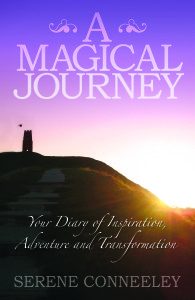 I wrote a book, A Magical Journey: Your Diary of Inspiration, Adventure and Transformation, that is part diary/notebook for you to write in, and part inspiration to connect with your inner self and get writing, with tips and exercises to help you express your thoughts on paper and blast through writers block.
I wrote a book, A Magical Journey: Your Diary of Inspiration, Adventure and Transformation, that is part diary/notebook for you to write in, and part inspiration to connect with your inner self and get writing, with tips and exercises to help you express your thoughts on paper and blast through writers block.
K. A. Last has also written a book, A Novel Idea! Colouring Journal For Writers, which combines the therapeutic art of colouring with the craft of writing, and prompts to help you start your project.
9. Look within.
It probably bears mentioning that if you’ve been telling people for years that you’re going to write a book, but you still haven’t written a single word, maybe you don’t really want to do it. Which is absolutely fine! Think about what would happen if you decided you didn’t want to write a book. Do you feel a weight lift from your shoulders, or do you feel even more strongly that you have to write your story? I beat myself up for ages because I kept trying to learn Spanish, signing up for classes and being diligent, then giving up, and starting again a year or two later. It was an immense relief to finally realise it wasn’t because I’m lazy, I just have other priorities. (I studied herbalism without any trouble, wrote eight books and worked out every day instead.) If you really want to do something you probably will, so if you’re putting something off, examine your motives. Letting go of the things you’re not passionate about will free you up to pursue what you do want to do. One of my favourite sentiments is: “If you really want to do something, you’ll find a way. If you don’t, you’ll find an excuse.”
 I won’t lie, it’s not easy to write seventeen hundred words a day, every day. Many times I’ve wanted to throw my notebook across the room and give up. It takes sacrifice – of sleep, of time with friends and family, of TV and Facebook time – and a lot of will power and commitment.
I won’t lie, it’s not easy to write seventeen hundred words a day, every day. Many times I’ve wanted to throw my notebook across the room and give up. It takes sacrifice – of sleep, of time with friends and family, of TV and Facebook time – and a lot of will power and commitment.
Sometimes I’d rather collapse on the couch and watch Star Wars with my hubby than banish myself to my little purple office and painstakingly write another few pages. There are nights I get home from twelve hours at the magazines and would much prefer to crawl into bed than force myself to stay awake and type in the words I hastily scrawled on the train to work, then write some new ones as well. Most days I’d much rather curl up and read a book than torture myself trying to write one.
But it’s only thirty days. Thirty days is nothing. It’s one moon cycle. Half of one of my workout programs. Four episodes of Arrow. You can do anything for thirty days.
Life is short. I want to live it with no regrets, and no excuses. Five years from now will I wish I’d spent more time on the couch watching superhero shows, or getting to bed a bit earlier – or will I be happy that I knuckled down and hit my word count targets and got the first draft of my next book finished? Like most things that are worth doing, it’s not easy, but it is possible, and it is worth it…
So what are you waiting for? Are you ready to start?
Think about one thing you can do right now to start working towards your goal – be it to buy a pretty journal to start writing in, blocking out thirty minutes a day in your diary for your writing sessions, or beginning the research you know you require… Now do it! And keep doing it.
If the thought of NaNoWriMo is too daunting, or November isn’t convenient for you, consider Camp NaNoWriMo, which takes place each April and July. It’s a little more low key and flexible than November’s main event – you can choose your own word count, rather than aiming for fifty thousand, and can write in any style you like. You can even commit to hours of revision or editing per day rather than a word count. My first Camp NaNo, I signed on for twenty-five thousand words, but passed thirty-two thousand by the end. The following April I aimed for thirty thousand, and just made it. Another time, I edited one of my books. You can sign on for five thousand words all up if you’re not feeling so brave, but I’ve found a thousand words a day to be a challenging yet achievable goal, even with crazy work deadlines, and if I miss a day, two thousand words the next to make it up is not impossible… Plus, you get to form writers cabins, which adds some fun…
So, are you tempted to sign up for NaNoWriMo so you can make your dream of writing a book become reality? I’ve written a blog post about NaNoWriMo here. If it sounds like fun, jump on over to their site and sign up. Or if you want to make a note of Camp NaNoWriMo for next year, bookmark this link.
Whichever way you do it, happy writing!
I originally wrote this post for the Story Queens website in 2016, but have updated it for 2018…
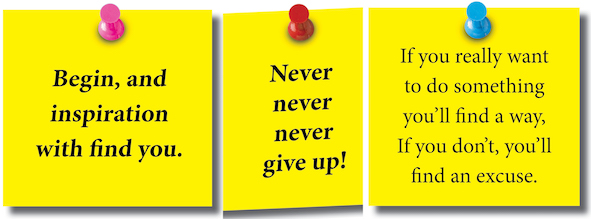

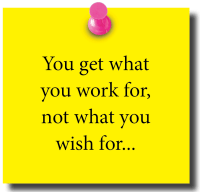
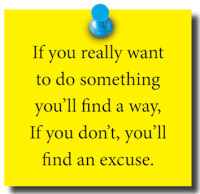


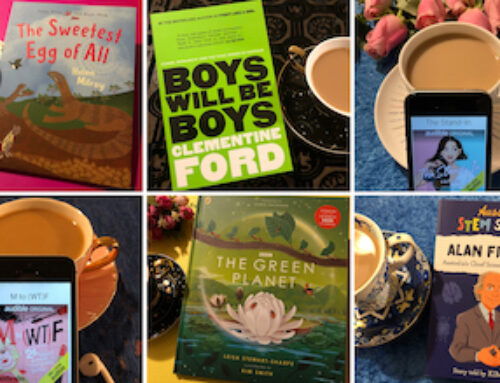
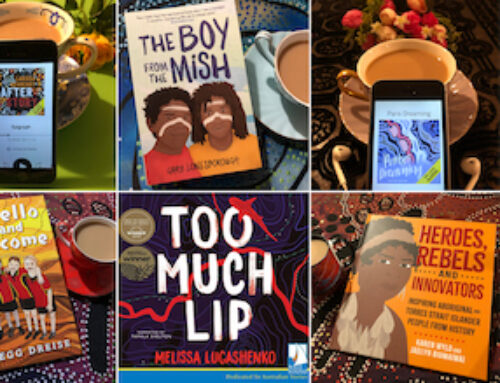

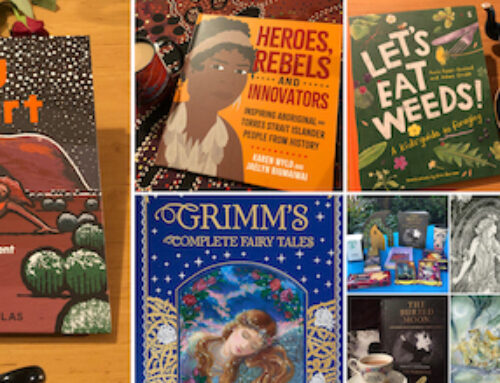


[…] Home/Articles, Blog, Writing/Let’s Talk Writing: I Dare You! Previous […]